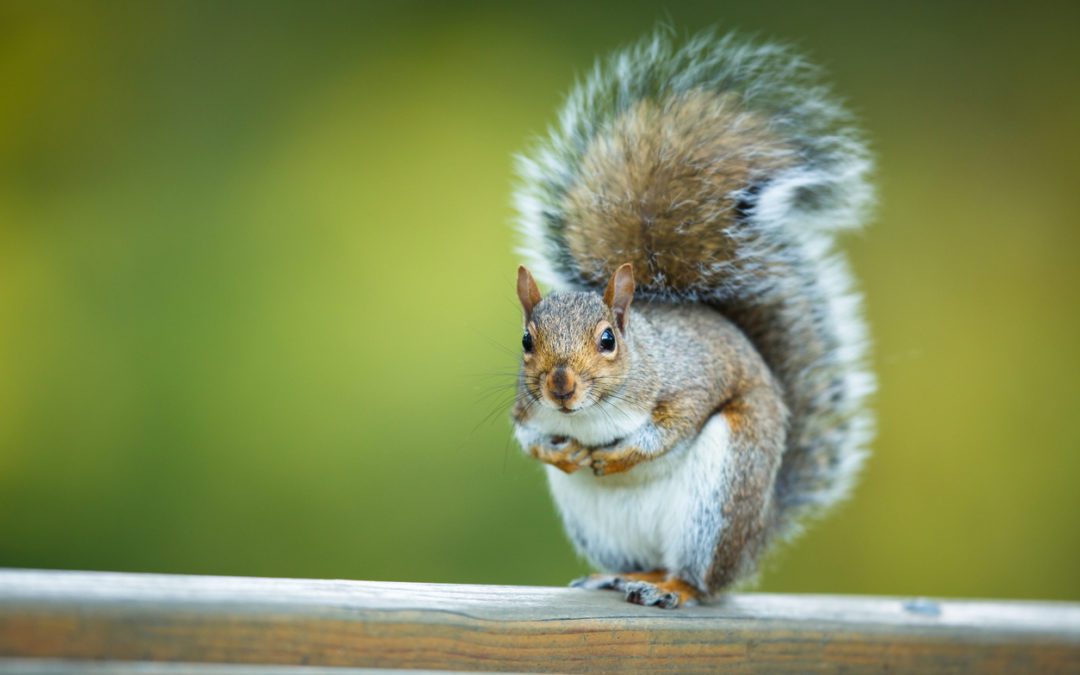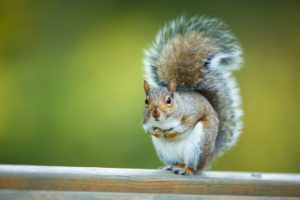The squirrels we see running along fence lines or jumping from tree to tree in our yards may seem harmless, but what you might not realize is that they are also masters of chaos and destruction. Top wireless fences you can see here. From city-wide blackouts and massive phone system malfunctions to house fires and insulation damage, the list of havoc they can wreak is endless. Between squirrel removal and damage repair, these nutty, little monsters cost Americans millions of dollars each year.
Squirrels are taking over the power grid
Recently, the ABC Wildlife team became aware of a website called Cyber Squirrel 1. This site keeps track of news stories around the country that report squirrels as the cause of major damage. Being a bunch wildlife nerds, naturally, we think this site is pretty awesome. Cyber Squirrel 1 has a map that is completely covered in little acorn icons, and each acorn represents a news article reporting squirrels as the cause of some kind of damage. Most of the incidents are major power outages. Last year, squirrels caused 2,500 Champaign citizens to lose electricity, and they took down River Forest District 90’s entire phone system. Across the entire country, millions of people have been impacted by squirrels’ war on technology, and you could be next.
Squirrels are taking over your house
Other incidents listed on Cyber Squirrel 1 were on a smaller, but no less disastrous level. In April of 2015, a squirrel nest inside the attic fan of a Batavia family caught fire, causing more than $3,000 dollars in damages. Squirrels are just as skilled at harming homes as they are the power grid. They are menaces year round, but they’re more likely to invade attics during winter. In addition to needing shelter from the cold, December through January is mating season, so squirrels are looking for a safe, cozy place to establish a den site. Squirrels create nests within the insulation, which commonly consists of them tearing up and bunching together the loose fibers in order to make a suitable area to rest. Depending on the location of the nest they’ve created, especially if in close proximity to electrical wires, fire safety is a serious concern. An estimated 20% of all indeterminate house fires in the U.S. are caused by rodents, including squirrels. Also, squirrels leave behind deposits of urine and feces. This type of contamination can spread a variety of zoonotic diseases and parasites. As with many wild mammals, there is the risk that the squirrels in your home will host insects such as fleas, ticks, and mites. Sadly, these dangers aren’t the only thing to worry about when dealing with a squirrel infestation.
Squirrels are very persistent when looking for an entry into a structure. They will commonly take advantage of unprotected roof vents, vulnerable points in the wood construction, and will chew through vent screens to gain access. With wildlife, where there’s a will, there’s a way. It is crucial that steps are taken to prevent these types of occurrences from taking place, and calling a professional squirrel removal expert is your best option.
Humane Squirrel Removal
From humane trapping programs to animal-proof vent guards to cosmetic structural repair, ABC Wildlife’s team of Illinois State certified squirrel removal technicians are ready to take action and protect you from the squirrelpocalypse. If you’re currently wrestling with an infestation or are simply looking to protect your investment, our crew of licensed and insured in-house repair specialists will leave you with the one thing a home-owner desires above all else: peace of mind. Contact us today at 847-870-7175 for more information on how to safely and humanely handle squirrel removal.
Sharing is caring! If you’ve learned something from what you’ve read, please click one of the icons below to share this post on social media.
Alex Nechvatal is a nuisance wildlife and pest control specialist licensed by the Illinois Department of Natural Resources and the Illinois Department of Public Health. He enjoys sharing his expertise with clients, spending time in the outdoors, and is an accomplished guitarist.
Karen Jesse is a wildlife writer and educator licensed by the Illinois Department of Natural Resources and the Illinois Department of Public Health in urban wildlife management and structural pest control. She enjoys hiking, telling people how cool skunks are, and opera.





